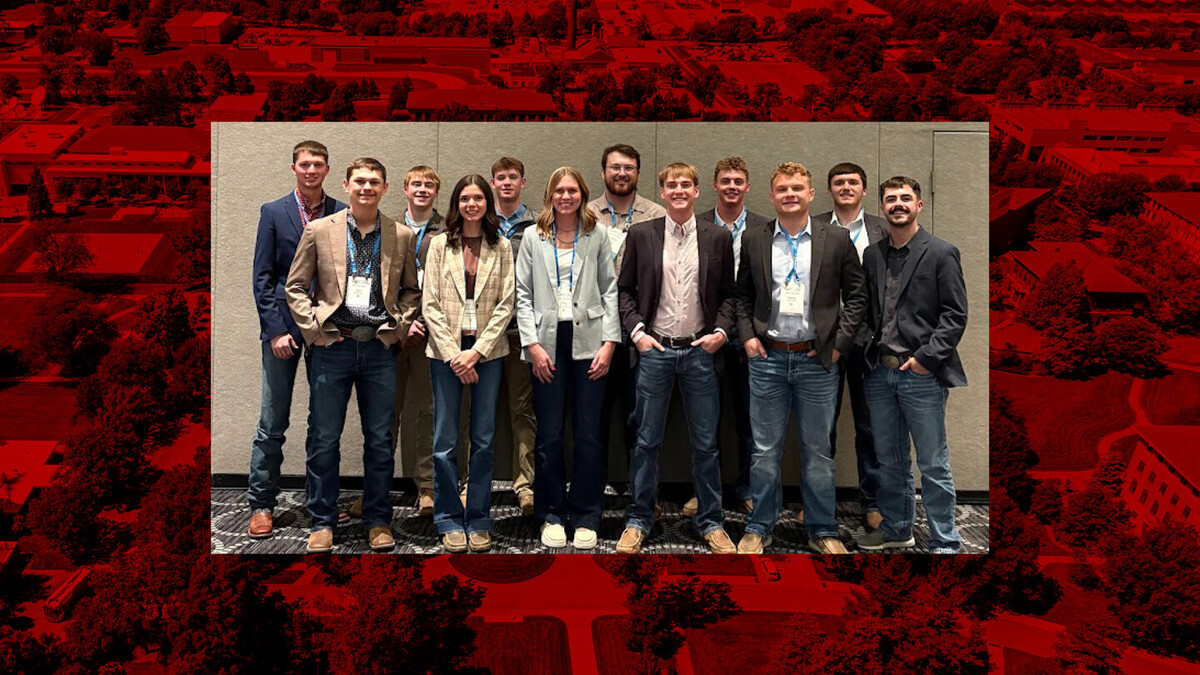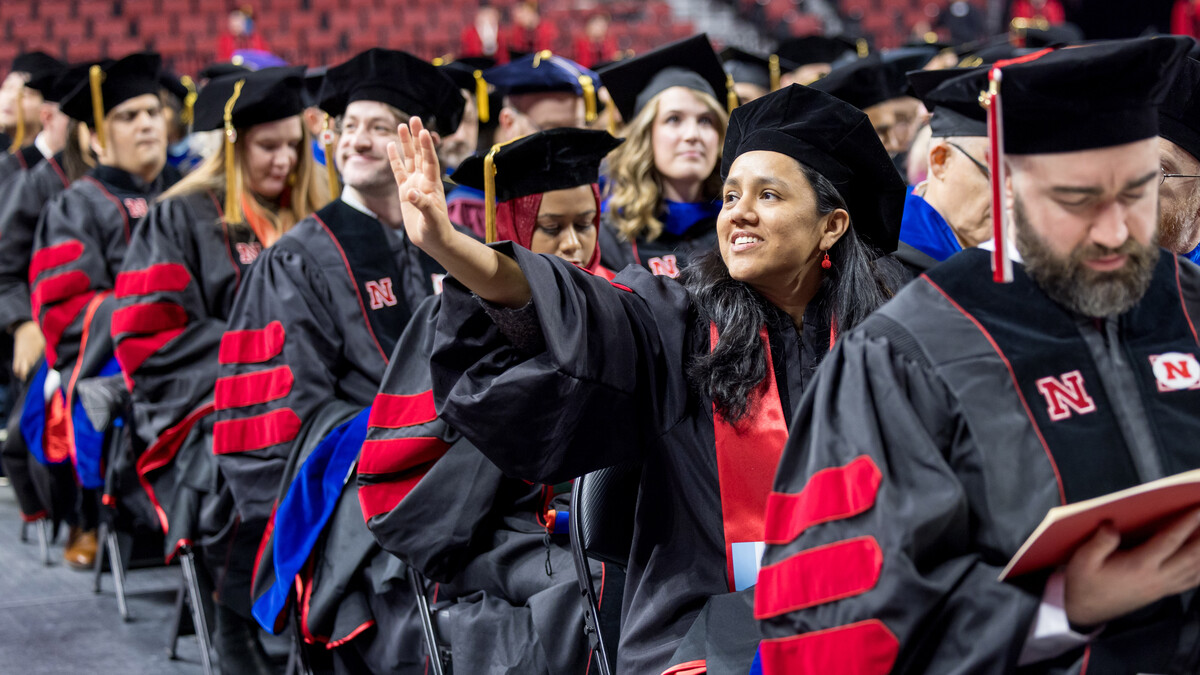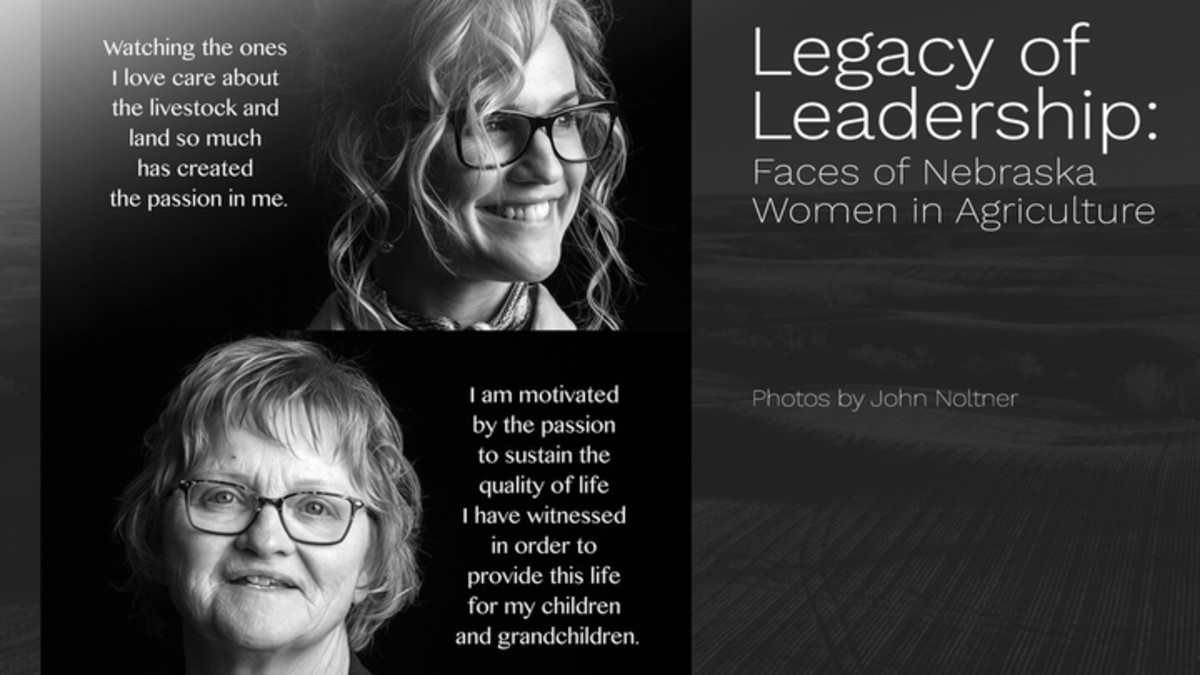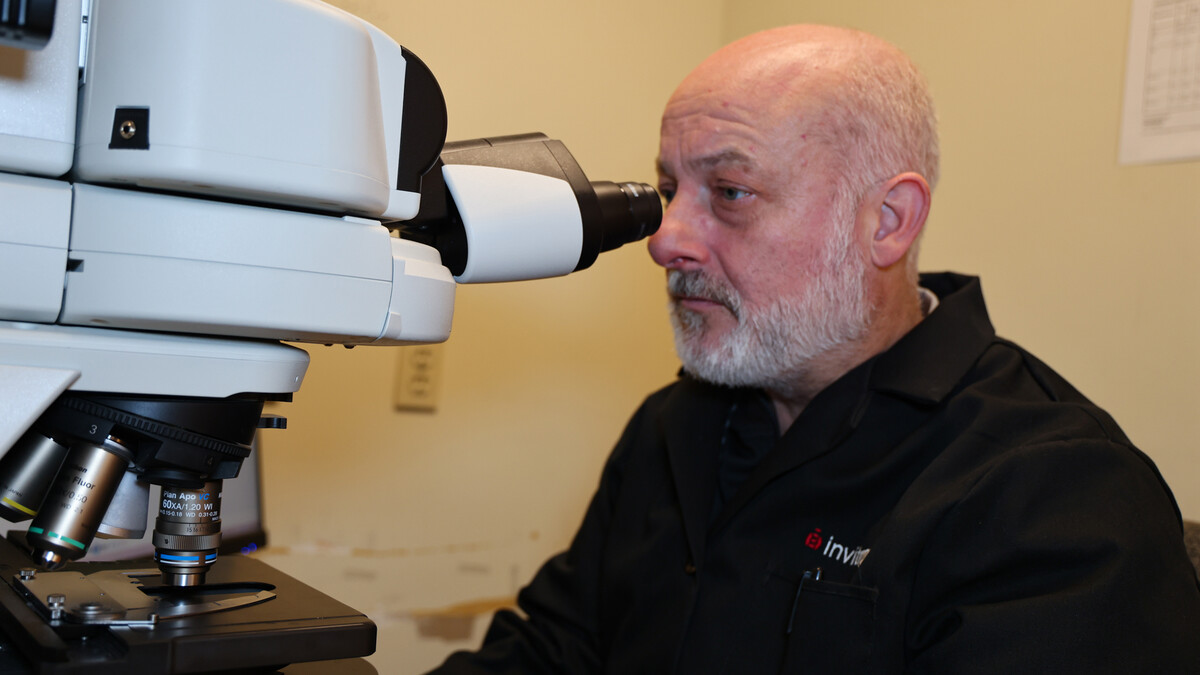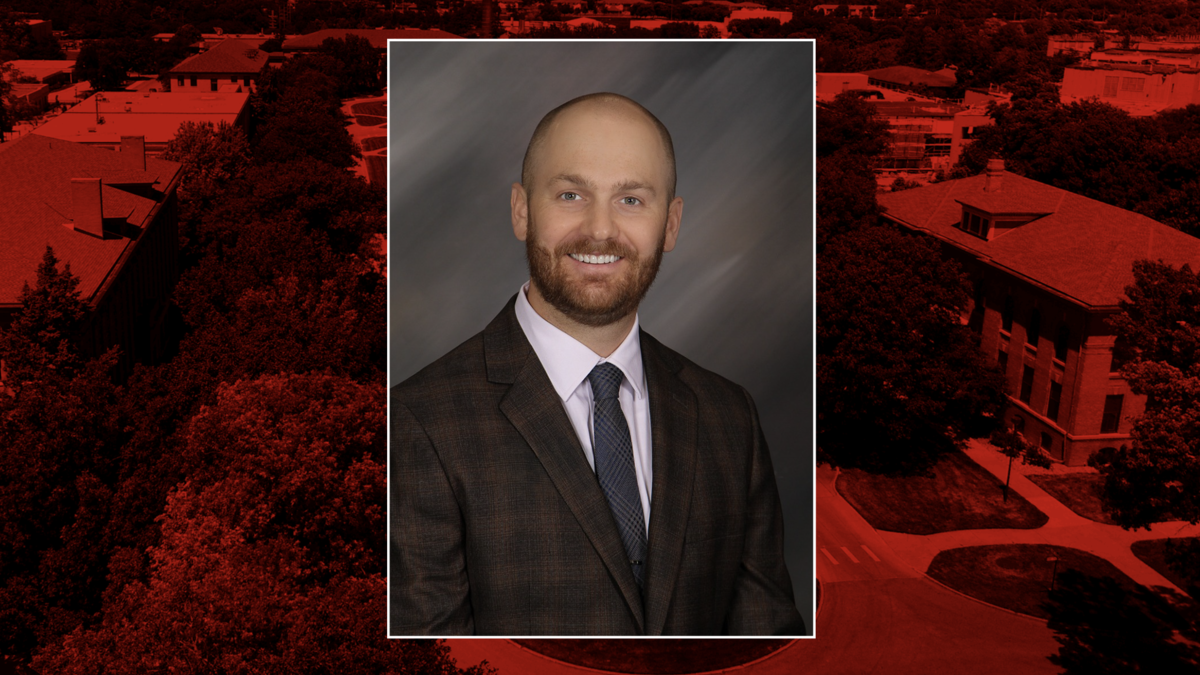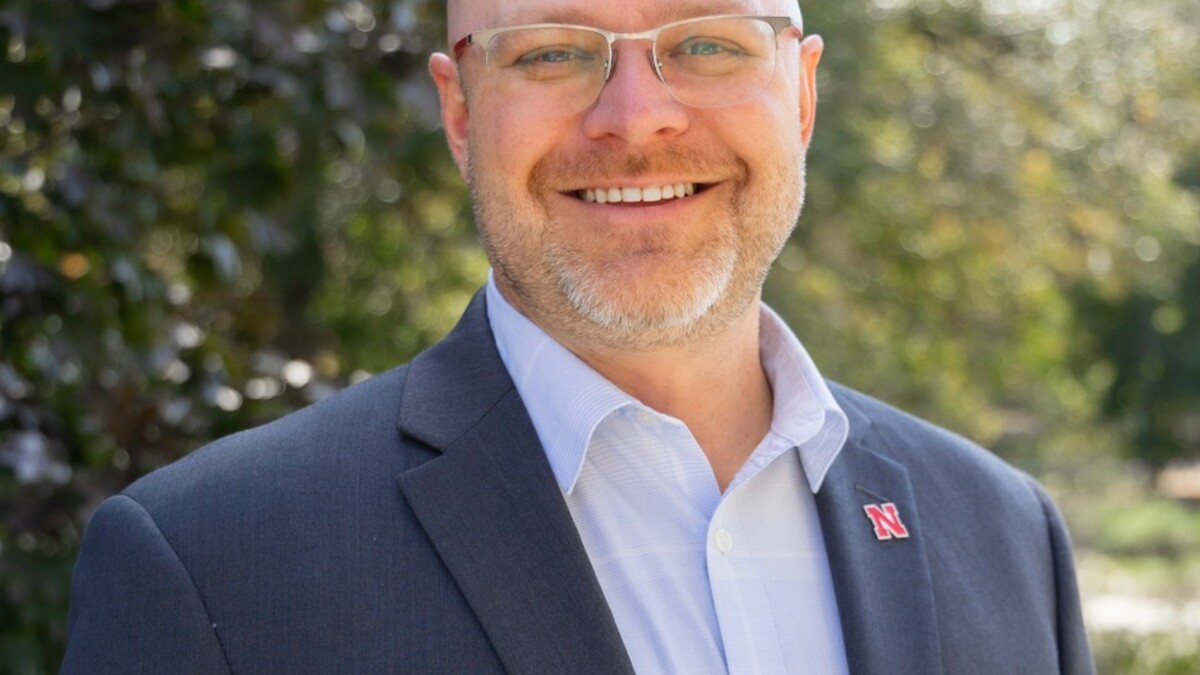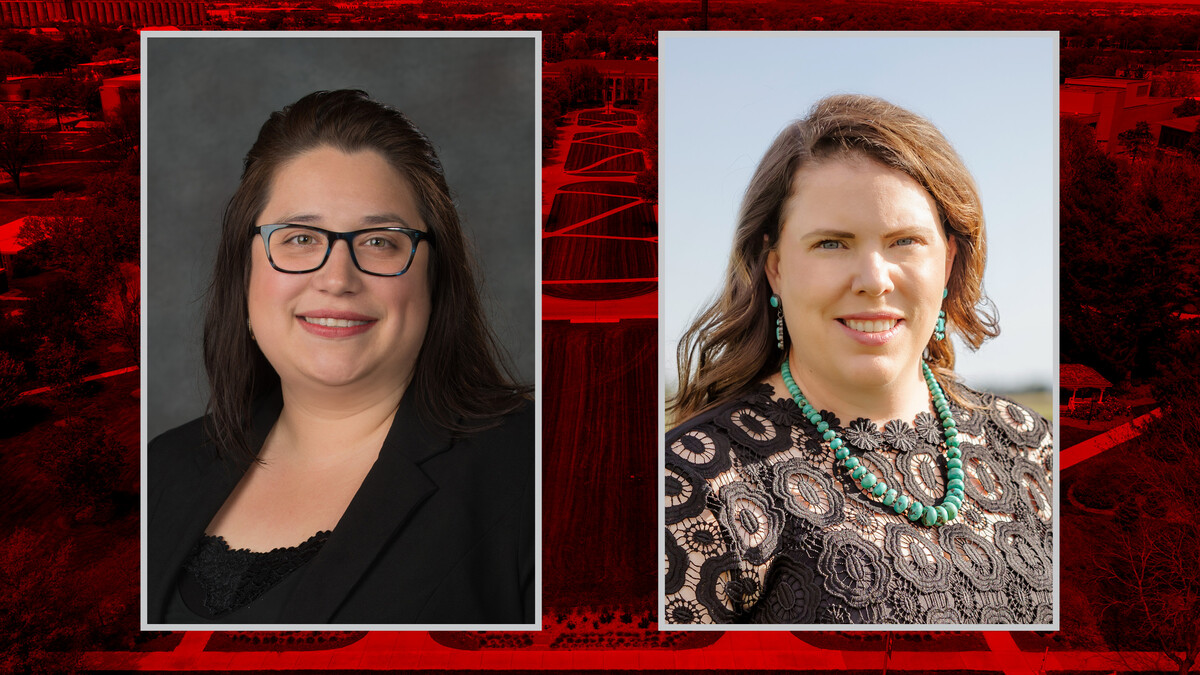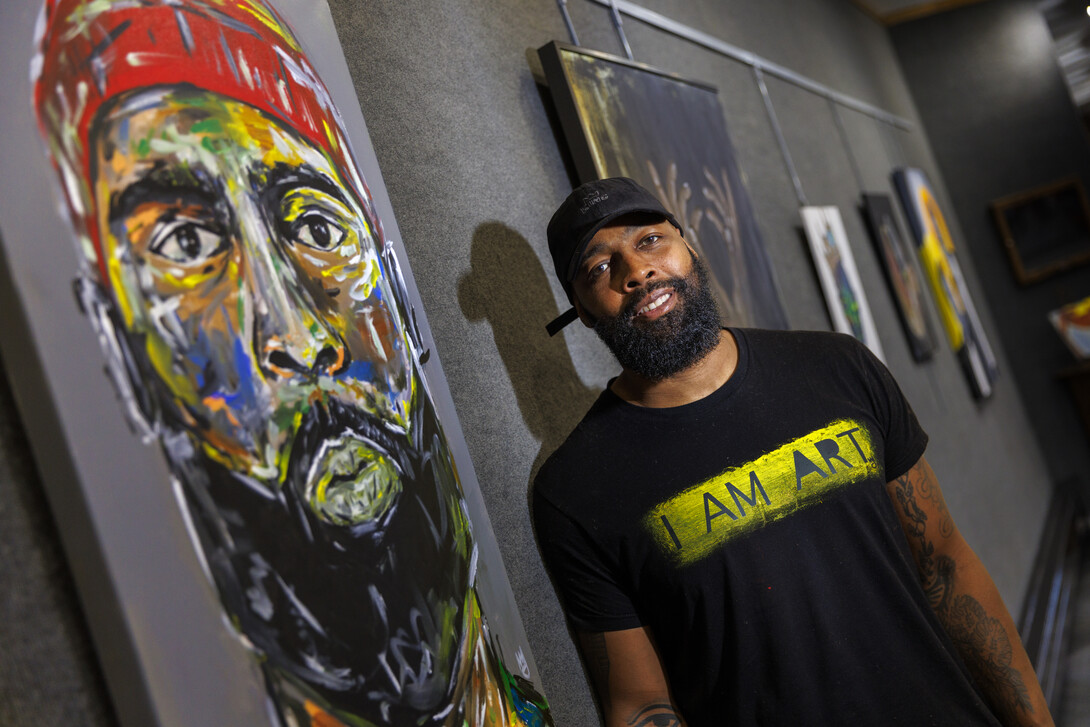
Lincoln, Neb. —Art, Jevon Woods says, has remarkable powers. It can inspire. It can inform. It can bring people together. It can heal.
Woods, a Lincoln resident, learned that directly in 2017 when he found himself in low spirits after he had to close his gym business. He turned to painting, and the creative experience turned his life around.
“A girlfriend of mine was a program director at the Love Jazz Center in Omaha,” Woods says. “We explored some museums and galleries in Omaha and she bought me some canvasses and brushes, and I was able to tap into that to help me paint my way out of the depression.”
The experience opened “another chapter” in his life, says Woods, an alum of Lincoln High School. That chapter has brought him a livelihood as a painter as well as important opportunities to share his art and connect with people. He has a studio in downtown Lincoln, produces a variety of creations marked by skillfully chosen vibrant colors, and has given a presentation at the Joslyn Art Museum in Omaha.
Art is “a sort of liberation,” says Woods, an African American artist. “You’re able to create and get a message across. With art you can escape to a freedom and send a message with the imagery of whatever you see in your mind's eye.”
Woods is a self-taught artist — and also a colorblind one. He can distinguish a variety of colors, but certain shades elude his vision. That’s proved no handicap for his art, though. His paintings radiate strong colors that combine to create powerful effects.
During February, the loft gallery in the East Campus Union is featuring an exhibit of Woods’ creations as part of Black History Month. The paintings cover a wide range, from prominent Black figures to a Woods self-portrait to scenes of family connection and societal hope.
Among the portraits is one of the late civil rights leader John Lewis. “He was an inspiration,” Woods says. The exhibit also includes a painting of Malcolm X, who was born in Omaha. Like Mohammed Ali, Malcolm X was “just fearless to me,” Woods explains. Such a dedication to moral principles — “being fearless in our approach to where our mission is” — can set an example for each new generation.
The exhibit of Woods’ creations provides “a great opportunity for us to have an African American artist that would inspire and bring the richness of the African American experience and history,” says Reshell Ray, associate director of student involvement and assistant manager of the Nebraska East Union. The monthlong exhibit “allows us to enjoy his creativity and his expression of the Black family through his art.”
Figures such as Malcom X and John Lewis are “very significant icons in the African American community,” Ray says. “There are heroes, legends and trailblazers in every culture, yet we can find that commonality when we are working for a common goal.”
The moral sensibility Woods conveys in his work, Ray says, reminds her of a quote from Archbishop Desmond Tutu, the late South African social activist who worked to bridge his country’s racial divide: “My humanity is bound up in yours, for we can only be human together.”
Woods cites as his central inspiration Jean-Michel Basquiat (1960-1988), a New York City-based artist who used strikingly imaginative imagery to convey social commentary. There’s no mistaking Basquiat’s work, Woods says: “It's different, it's unique and when you see it, you know that's a Basquiat piece.”
Basquiat’s approach is “really free,” providing tremendous appeal to Woods: “I aspire to get to a level where it's just a real freedom of expression.” Woods gave a presentation on Basquiat’s work at the Joslyn Art Museum in 2019 when a Basquiat painting was included in an exhibition there. Woods describes the opportunity as “a highlight of my life.”
The current ECU exhibit of Woods’ paintings includes a painting of Basquiat. “I added my own touches to it,” Woods says.
Pursuing artistic creation has important rewards for Woods. Taking brush to canvas is liberating. Painting frees up the artist “to create and get a message across in society where they say, 'Well, you can't make that' or 'You can't paint that.’ No, with art, you can go and escape to a freedom where you're able to create and send a message or an image of whatever you see.”
Perspective then becomes important, he says, as viewers bring their own viewpoints to interpreting the painted images.
There’s another, all-important benefits from art, Woods says, as life experiences for himself and others show: “Art heals — art is healing therapy. Art is meditative. People looking at a piece — it can bring people together.”

